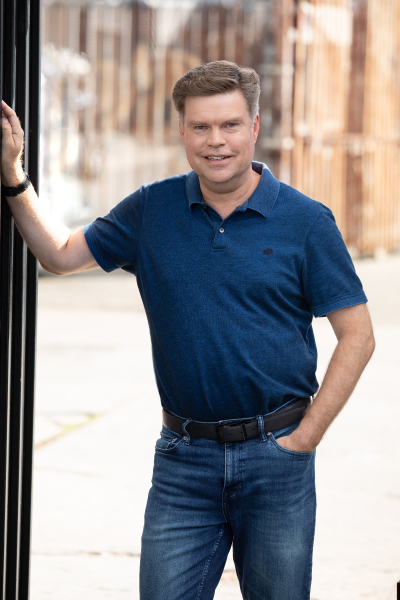Democrat presidential candidate Jason Palmer wants 'religion to come back into public life'

Most Americans didn't know who Democratic presidential candidate Jason Palmer was until he upset President Joe Biden by winning the territorial caucus in American Samoa on Super Tuesday.
His victory marked the first time since 1980 that an incumbent president lost a presidential primary or caucus.
While Biden has clinched the delegates necessary to secure the Democratic nomination, Palmer vows to remain in the race for the foreseeable future.
His platform includes balancing the federal budget within five years, sending a thank-you letter to taxpayers telling them exactly how their money was spent, term limits, public funding of elections, ranked-choice voting and the establishment of a new Department of Innovation and Technology.
In many ways, Palmer's priorities overlap with those traditionally associated with the modern Democratic Party. For example, he favors a law that would codify the Roe v. Wade decision that legalized abortion nationwide into federal law, enacting healthcare reform that would allow people aged 50 years and older to buy into Medicare for the price of a Gold or Silver Obamacare plan and looking into a "Federally sponsored reparations program."
On the other hand, Palmer differs from his fellow Democrats on certain issues related to education, religious liberty and the role of religion in public life.
He discussed the ins and outs of his political views and his take on issues many Evangelicals find important ahead of the 2024 election in an interview with The Christian Post. Below is an edited transcript of the interview.
The Christian Post: What would you like to say to a Christian audience?
Palmer: I've been a Quaker by choice since I was about 17 years old. And I've been a Christian all my life. My mother was Methodist, and I've grown up in a Christian tradition.
CP: How does your Quaker faith influence your politics?
Palmer: Quite substantially, actually. Quakers believe there is that of God in every person, and that makes us strong advocates for peace. In the current times, I've been advocating for a ceasefire in Gaza since November, and I'm more open to creative solutions to the Ukraine conflict as well as because we have to prevent loss of life. We have to make sure this doesn't become a forever war.
CP: Can you share how you came to your Quaker faith? Do you have … a testimony story?
Palmer: My best friend … and his family invited me to attend some Quaker meetings, and then, over time, I ended up going to a place called New York Yearly Meeting every summer, which is a gathering of sort of 300 Quakers from all over New York state. Just participating in more Quaker meetings, reading Quaker testimonies, and really loving everything about Quaker tradition eventually led me to start circling the box.
When you get asked to go to college, it says, "What religion are you?" or at least it used to. I actually don't know if it says that anymore, but … I would circle the box or fill in the box that said "Quaker," and I've been a Quaker ever since.
I consider myself Quaker-ish, which is not really a word. I don't actually have a home meeting that I have formally registered with or been adopted into, and that's because I've moved around a lot over the course of my life.
I lived in Boston for a while. I lived in Charlottesville, Virginia; Berkeley, California; Seattle, Washington; and now I live in Baltimore, Maryland; and so I've attended meetings all over the country. But I don't actually have a home meeting, which some people … think is needed to be officially Quaker, but most Quakers do not.
CP: Do you attend meetings on a regular basis regardless of where it is?
Palmer: I would say I am an irregular attender, to be perfectly honest, of weekly meetings, but I'm a very regular attender of the yearly meeting.
Ryan Foley is a reporter for The Christian Post. He can be reached at: ryan.foley@christianpost.com



























